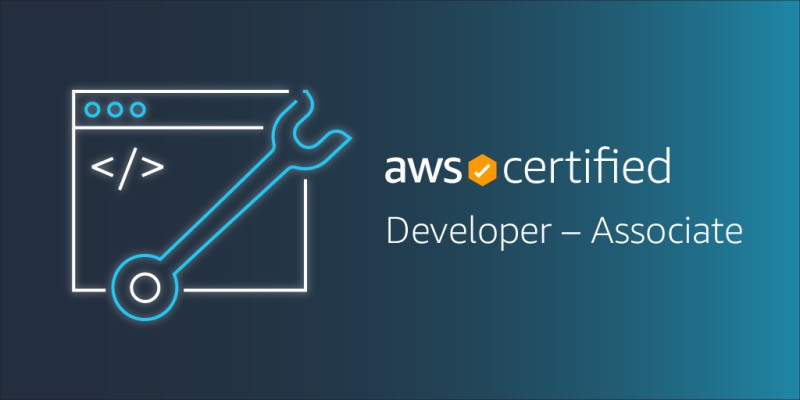AWS Certifications: Are They Worth It? Should You Get One?
 Evan Tung
Evan Tung
If you have spent any amount of time in the tech world, you will know that while there are many standard certifications that you can get if you work in IT, the world of certifications for Software Development is vastly different and much more disorganized, because of the fast pace at which technologies come onto the scene and become deprecated. There are certifications for specific technologies like MongoDB or Snowflake, but not all companies use those technologies, and there is always a risk of learning a legacy technology. AWS Certifications are a little bit different, as they cover a breadth of cloud technologies. I recently got my AWS Certified Developer - Associate, and I'm here to give an explanation about AWS Certifications, my experience getting my AWS cert, and give an analysis on whether or not you should pursue one.
What are AWS Certifications?
AWS Certifications, as you may have guessed by the name, are certifications that demonstrate skills and experience in Amazon Web Services. Most companies now run their software on the cloud, and Amazon Web Services is the original and largest cloud service provider as well as the innovator in this space. As more and more companies migrate to a cloud-first software development approach, they are looking for people who know how to use cloud services to resolve the complexity and choice that the cloud can bring. One of the primary ways that these skills can be demonstrated is with the certifications that the cloud providers offer.
These certifications are split into four levels (Foundational, Associate, Professional, and Specialty) and multiple certification paths. The certification path that I am pursuing is the Software Development Engineer path, hence my choice to pursue the AWS Certified Developer - Associate. They usually cover a broad range of cloud technologies, including VMs and networking (EC2), object storage (S3), databases (RDS, DynamoDB), and serverless functions (Lambda). The main difference that AWS certs have when compared to technology-specific certifications is that they offer the breadth of knowledge about cloud technologies. While certain technologies may come into and fall out of fashion, Amazon Web Services as a whole is here to stay for a long time. Out of the different types of certifications for software development, AWS Certifications are probably the most valuable because of the both the breadth of technologies they cover as well as companies' need for developers skilled with AWS.
How I Prepared For My AWS Cert
Before I dive into how I prepared for my AWS Certified Developer - Associate exam, you should know that I am not a complete newbie to software development or Amazon Web Services. I have past experience as a Software Dev Engineer, and have used multiple Amazon Web Services since I work there after all. As a result of this, even though the Software Development Engineer certification path starts off with the AWS Certified Cloud Practitioner, I decided to skip the Foundational-level cert and go straight for the AWS Certified Developer - Associate. The certification paths document shows that the AWS Certified Cloud Practitioner is optional for IT/cloud professionals, so if you have already worked with AWS before, you should probably skip it too and go straight to the Associate-level cert for your path.
The entire process of my preparation for the certification exam took around 3-4 months, although I wasn't consistent in my studying for the exam. I decided that I was going to study for my certification in October 2023, and finally took the exam and passed in January 2024. I had experience with most of the popular services from my full-time job and my previous summer internship in 2022. As an Amazonian, I could get 50% off the exam fee as well as free access to the major AWS courses from AWS Skill Builder, A Cloud Guru, Cloud Academy, and more. I started studying the A Cloud Guru course for the cert in October, and went through the videos in my spare time. I had decided not to follow the labs or demos, because the exam itself was just multiple choice questions and at work we use Infrastructure-as-Code with the AWS Cloud Development Kit (CDK) instead. It took me 3 months on and off to finish watching the videos and taking the quizzes, and I would say that the content of the course was spot-on compared to the exam questions. I spent January taking any practice exams I could find, and got an average of 85% correct. I would say that anything above 80% correct is usually a passing score. I finally registered and took the exam in late January, and passed the exam and got the AWS Certified Developer - Associate.
Although I didn't realize it at the time, studying for the AWS certification has actually helped me in my day-to-day job. I began recognizing the best service for solving a problem, and the best practices for using certain services (structuring tables and indexes in DynamoDB, for example). I was able to ask better questions about design decisions and challenge the choice to use one service over another. The resume impact of the certification has not been as big for me because I already work here, but I definitely have more context and knowledge in my day-to-day job.
Should You Get AWS Certified?
This is a hard question to answer, and the short answer is "it depends". But there are a few criteria that you can use to judge yourself on if you should pursue an AWS certification.
Do you already work with cloud services? This is the obvious question. If you are a DevOps Engineer, Site Reliability Engineer, or Software Engineer who also works in operations, then pursuing an AWS Certification is probably a good choice for you. It will help you understand design decisions and choose the right service for the job, like it did for me. It is also a decent resume booster, as companies nowadays are looking for cloud experience and certifications are the most valuable demonstrator of cloud experience.
Are you Early Career? If so, I would also recommend that you pursue an AWS certification. As with the case above, having an AWS certification can be a great resume booster and help you stand out in a sea of junior engineers. As a junior, you need every edge over the competition you can get, and an AWS Certification can be one in your arsenal. It will also help you onboard faster at a company that uses AWS, as you will already know how to use the tools that they are working with.
Is there a certification path for you? Lastly, if there is a certification path that matches your role or career path, then you can maybe consider pursuing the certifications in that path. If you think you would benefit from gaining certifications pertaining to your role or career path, that is something you can consider.
I hope this post helps those who are interested in AWS Certifications and are wondering about whether or not it is worth it to pursue one. My experience with certification may be a little different than others', but I hope that it can still help you decide. If you have any questions or want to relay your own experience with AWS Certifications, please feel free to comment here.
Subscribe to my newsletter
Read articles from Evan Tung directly inside your inbox. Subscribe to the newsletter, and don't miss out.
Written by

Evan Tung
Evan Tung
Hey! My name is Evan and I am a Software Dev Engineer with Amazon Web Services. I love learning about the applications of machine learning in space and on satellites. I am also a Civic Technologist, building tech solutions for governments and nonprofits.